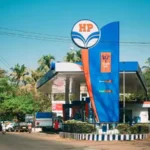Oilfield supply under scrutiny as HPCL reports corrosion at Mumbai Refinery; HOEC denies responsibility and cites contract compliance
Mumbai/Chennai, October 28, 2025:

A day after Hindustan Petroleum Corporation Limited (HPCL) reported a setback at its Mumbai refinery due to high chloride levels in crude oil supplied from the B-80 offshore field, the supplier — Hindustan Oil Exploration Company Limited (HOEC) — has issued an official clarification denying any contractual breach, setting the stage for a potential dispute between the two oil sector companies.
On October 27, HPCL had informed exchanges that its Mumbai Refinery operations had been disrupted after processing a batch of crude oil sourced from HOEC. The crude reportedly had high salt and chloride content, which allegedly led to corrosion in downstream units and suboptimal yields. HPCL said it had initiated corrective measures and may pursue contractual claims for damages against the supplier.
However, in a regulatory filing dated October 28, HOEC provided a detailed response, stating that it had fulfilled all contractual obligations and that no loss, damage, or claim is attributable to the company under the crude oil sales agreement signed on September 3, 2025.
HOEC’s Official Clarification
According to the document submitted by HOEC to the NSE and BSE, the company completed offtake and custody transfer of approximately 54.6 TMT of crude oil to HPCL on September 25, 2025. The crude quality, the company said, was based on an independent laboratory assay report dated July 12, 2025, which had been reviewed and accepted by both parties before the transaction.
HOEC further clarified that HPCL’s own surveyor had drawn samples at the time of offloading at the B-80 field, which were later analyzed by HPCL. The state-run refiner subsequently claimed elevated chloride content, but HOEC maintains that the cause of this reported contamination is under examination.
“The Company will engage in discussion with HPCL for redressing the issue,” said G. Josephin Daisy, Company Secretary of HOEC, in the filing. The company also noted that it had supplied substantial quantities of crude oil from the same block in the past without any quality issues, implying this incident may be an isolated anomaly rather than a systemic problem.
Industry Perspective
Experts say disputes over crude quality and contamination are not uncommon in upstream–downstream transactions, particularly when custody transfer occurs offshore. “Crude blending, pipeline residuals, or storage conditions can affect chloride readings,” explained an independent petroleum consultant. “Such issues are usually resolved commercially rather than through litigation, unless negligence is proven.”
The B-80 field, located in the Mumbai Offshore Basin, is operated by HOEC in partnership with Adbhoot Estates Pvt. Ltd. It began production in 2021 and has been one of the few successful privately-operated offshore blocks under India’s Discovered Small Field (DSF) policy.
Analysts believe the situation is unlikely to materially affect HOEC’s financials. “The total supply volume is relatively small, and both HPCL and HOEC are likely to pursue a technical resolution rather than a prolonged dispute,” said an oil sector analyst from Prabhudas Lilladher. “However, this episode does highlight the operational sensitivities in India’s private-public oil trade.”
HPCL’s Recovery Measures
HPCL is reportedly assessing the extent of impact on its Mumbai Refinery throughput, which has a capacity of 9.5 million tonnes per annum. Sources suggest that the refinery resumed partial operations after temporarily halting crude distillation in one of its units to flush out affected residues. The company has not indicated any major production losses as of yet.
Officials also noted that HPCL’s refinery infrastructure includes desalting systems designed to manage crude impurities, but excessive chloride levels can accelerate corrosion in heat exchangers and other metallic components — raising maintenance costs and safety concerns.
Conclusion
The HPCL–HOEC episode underscores the complex chain of accountability in India’s oil production and refining ecosystem. With both companies now engaging in discussions, the matter is expected to be resolved through technical reconciliation and contract-based negotiation rather than legal confrontation.
For investors, the incident offers a reminder that operational risks in energy logistics remain significant despite technological advancements, particularly when private and public sector entities interface in upstream–downstream operations.
